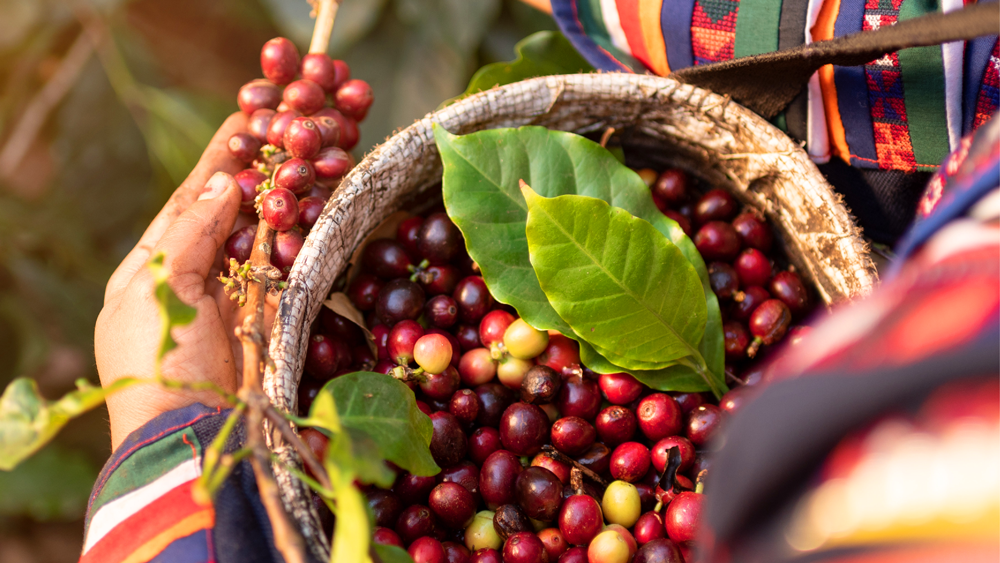Egypt’s project to cultivate coffee beans locally has shown promising results after 40 years of trials.
Egyptians consume around 70,000 tons of coffee annually, costing the country approximately USD 340 million (EGP 16.4 billion) in imports.
According to the Central Agency for Public Mobilization and Statistics (CAPMAS), Egypt’s imports of non-roasted or decaffeinated coffee reached USD 167.6 million (EGP 8 billion) in the first 10 months of 2023, a 1.9 percent increase from the previous year.
The project, spearheaded by the Horticultural Research Institute (HRI) of the Ministry of Agriculture, aims to significantly reduce import costs through local production, saving millions of dollars and reducing reliance on foreign coffee.
The preliminary trials for coffee cultivation were successful, reported Ayman Hamouda, director of the HRI.
After years of scientific experiments, coffee beans were successfully yielded in regions such as Qalyubia, Beheira, Ismailia, Assiut, and Minya, with seven to nine kilograms yielded per tree, marking a significant breakthrough. Currently, trials are held in the Qanater Charity area, located north of Cairo.
Historically, Egypt’s climate has been considered unsuitable for coffee cultivation. However, recent climate shifts are being utilized to the project’s advantage as humidity levels increase, creating the ideal climate for coffee crops.
The HRI research team believes that this change in climatic conditions makes domestic coffee bean cultivation feasible. These findings were echoed by Adel Abdel-Azim, head of Egypt’s Agricultural Research Center, who stated that climate changes observed over the past two years might make Egypt capable of cultivating coffee beans and other tropical crops.
Nonetheless, this does not come without challenges.
Navigating climate change
Abdel Baset Oqaili, a plant nutrition consultant at the Desert Research Center, a research center affiliated with the Ministry of Agriculture that works on achieving sustainable development in desert areas, believes that “Climatic factors in Egypt are still unsuitable for coffee growing unless a genetic modification or hybridization of the seeds is carried out.”
The project employs advanced agricultural techniques. Hamouda explained that “some compounds are being used to mitigate the impact of high temperatures and climate changes that negatively affect the coffee crop.”
Such innovations include mist irrigation systems and planting coffee under shade trees like palm, avocado, and mango to protect the coffee plants from direct sunlight and high temperatures and mitigate the adverse effects of Egypt’s harsh climate on coffee crops.
Despite these challenges, the preliminary success showcases the potential for widespread cultivation.
The Ministry of Agriculture is now focusing on expanding the cultivation across the country, with plans to plant 120,000 seedlings across various governorates, ensuring that Egypt’s coffee production can meet local demand and potentially pave the way for exports.
According to Hassan Fawzi, Head of the Coffee Division at the Cairo Chamber of Commerce, the project demonstrates financial benefits.
He highlights the potential for significant savings on import costs and the possibility of exporting Egyptian coffee in the future. While it is still early to judge the project’s overall success, the promising initial results provide a strong foundation for optimism.







Comment (1)
[…] post Egypt’s Homegrown Coffee Production Shows Early Promise first appeared on Egyptian […]